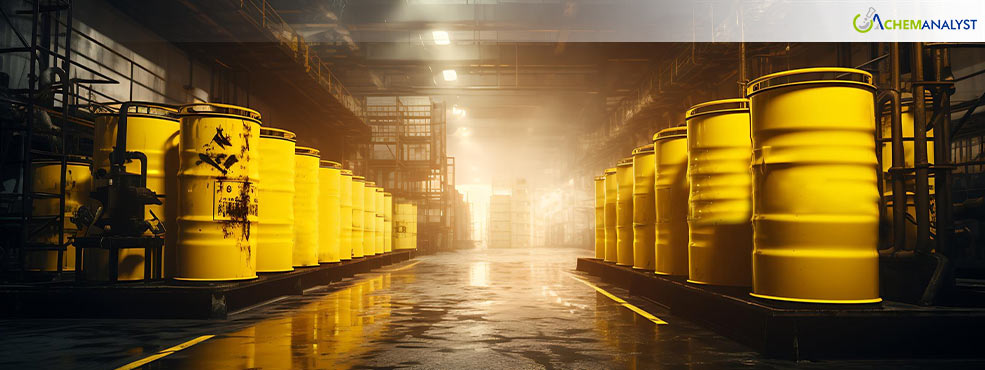Welcome To ChemAnalyst

Methylene Dichloride, commonly known as Dichloromethane, has recently garnered attention following a ban imposed by the USA on its use in consumer products due to health and environmental concerns. Despite this regulatory shift, Methylene Dichloride remains a vital raw material in various industrial processes, leading to its continued use in sectors like pharmaceuticals, paint stripping, and metal cleaning. The implications of this ban have sparked discussions among industry stakeholders regarding compliance and operational needs, particularly as Methylene Dichloride is extensively utilized as a solvent and extraction agent.
In September, the global chemical market exhibited notable price stability for Methylene Dichloride across several key regions. In China, prices remained steady at approximately 375 USD/MT, while India reported stability at 34,750 INR/MT. The USA maintained a price of 545 USD/MT, and Germany saw prices stabilize at 695 USD/MT throughout the month. This overall stability suggests that, despite some fluctuations in specific markets, the demand for Methylene Dichloride continues to be robust, reflecting a broader trend of resilience within the chemical sector.
Interestingly, Methylene Dichloride market dynamics are being further shaped by emerging substitutes and alternative solvents. Companies are investing in research and development to identify safer and more environmentally friendly alternatives to Methylene Dichloride. This shift is not only driven by regulatory pressures but also by a growing demand from consumers for sustainable practices. The rise of green chemistry is influencing various industries, prompting stakeholders to rethink their reliance on traditional solvents.
As global markets adjust to new economic conditions and regulatory frameworks, analysts predict that demand for chemicals like Methylene Dichloride will remain steady over the coming years, albeit with a potential gradual decline as alternatives gain traction. In Brazil, potential increases in import tariffs on chemicals could bolster domestic production margins, further influencing market dynamics. Additionally, the European Union is contemplating stricter regulations on Methylene Dichloride, which could have ripple effects throughout the supply chain.
The prohibition on Methylene Dichloride presents significant challenges for various sectors; however, the persistent stability in pricing and demand highlights the intricate dynamics of navigating regulatory frameworks while ensuring uninterrupted operational continuity in essential industries. Industry experts recommend that companies take a proactive approach by actively engaging with regulatory bodies and investing in advanced compliance technologies to effectively adapt to the constantly evolving landscape. As the chemical sector faces increasing scrutiny, maintaining a delicate balance between regulatory adherence and operational viability will be crucial for fostering future growth and sustainability. This situation underscores the importance of strategic planning and innovation in compliance practices, as businesses must not only respond to current regulations but also anticipate future changes to remain competitive in a rapidly shifting market environment.
We use cookies to deliver the best possible experience on our website. To learn more, visit our Privacy Policy. By continuing to use this site or by closing this box, you consent to our use of cookies. More info.
